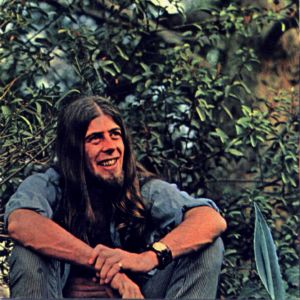
- Format: MP3

Reviewer: Kurt Harding "bon vivant" (Boerne TX)
I have been a fan of John Mayall since I was 10 years old and have enjoyed nearly all his music before and since, but Back To The Roots merits a special place on the long list of Mayall blockbusters. The 1960s and early 1970s were a period of tremendous creative ferment in the world of music and Mayall was always in the vanguard of experimentation. He is known to most who know of him as a blues artist, but on this CD he stretches that concept even beyond the new musical ground covered on his groundbreaking album Turning Point. On Back to the Roots, Mayall touches more on social issues and the everyday concerns of the people than at any time before or since. What commuter couldn't relate to Prisons on the Road, a song even more meaningful today than it was in 1970? Accidental Suicide is a cautionary song about the dangers of excessive drug use. Groupie Girl ridicules the bimbos who are "chasing after fake love in the world". Marriage Madness expounds Mayall's view that marriage is a legal albatross around an individual's neck, however he has since come a long way from the libertine sentiments expressed in this and in his earlier hippie anthem, Room to Move. Mr. Censor Man lashes out at the tyranny of the censorship that was then fairly prevalent. One of my favorites, lyrically, is Television Eye, which denounces the hypnotic and addictive power of television and its commercials which try to make him "buy things I'll never use". Along with the social commentary the listener is treated to some damn good music throughout, including the remixes of some of the songs with Joe Yuele on drums dubbed in. Mayall once again assembled an all-star cast of musicians, some of whom are still well-known today and those who have faded into obscurity. The well-known include Eric Clapton and Mick Taylor, while the more obscure include such late 60s-early 70s heavyweights as guitarist Harvey Mandel, sax and flute player Johnny Almond, violinist Sugarcane Harris, and legendary drummer Keef Hartley. While Back to the Roots offers little in the way of traditional blues, there is a lot of Mayall's signature piano here and a lot of good progressive music in the inimitable Mayall style. This CD deserves more than five stars and I say its about time that this superb Mayall album is available to both his old stalwarts and a new generation of fans.
For this double-LP, recorded in November 1970, John Mayall gathered together prominent musicians who had played in his bands during the past several years, including Sugarcane Harris, Eric Clapton, Johnny Almond, Harvey Mandel, Keef Hartley, and Mick Taylor. Mayall's compositions aren't all that impressive, but the sidemen frequently shine, especially Clapton. Back To The Roots hit Number 52 in the U.S., and Number 31 in the U.K., where it was Mayall's final album to reach the charts. It was reissued in altered form under the title Archives To Eighties in 1988. (See separate entry).